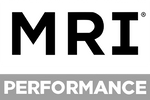Creatine for Neuromuscular Conditions: A Guide to Supporting Muscle & Energy
Posted by MRI Performance on 15th Aug 2025
Fueling the Fight: How Creatine Can Help Against Neuromuscular Conditions
For athletes and fitness enthusiasts, muscle weakness is often a temporary hurdle, a sign of a tough workout or a need for a rest day. But for individuals living with neuromuscular conditions, muscle weakness, fatigue, and atrophy are persistent, life-altering challenges. These conditions, which affect the nerves and muscles, can progressively limit a person’s mobility and independence.
While creatine has long been celebrated for its ability to enhance performance in healthy individuals, a growing body of scientific research is exploring its potential as a supportive therapy for those facing these difficult battles. Creatine is showing promise not as a cure, but as a powerful ally in the fight to preserve muscle function, energy, and quality of life. In this deep dive, we’ll explore the science behind how creatine can help provide a vital support system for compromised muscles.
The Core Problem: A Muscle Energy Crisis
At the heart of many neuromuscular conditions lies an "energy crisis." In a healthy muscle, the energy for contraction comes from a molecule called ATP (adenosine triphosphate). The body has a built-in backup system for quick ATP regeneration: the creatine-phosphocreatine system. This system allows muscles to perform high-intensity tasks before tiring out.
However, in many neuromuscular conditions, this system is compromised. Muscle cells may have a reduced capacity to produce ATP, or their mitochondrial function may be impaired. This leads to a vicious cycle of muscle weakness, chronic fatigue, and progressive muscle wasting (atrophy). The muscles simply run out of fuel too quickly, making even simple tasks feel like a monumental effort.
This is precisely where creatine supplementation can be beneficial. By providing the raw material for the phosphocreatine system, creatine helps to boost the energy reserves within muscle cells. This can lead to a more stable and available energy supply, potentially improving muscle function and endurance.
Creatine's Multi-Faceted Support for Neuromuscular Health
Creatine’s benefits for neuromuscular conditions extend far beyond just energy replenishment. Its unique properties provide a holistic support system for muscle cells that are under stress:
- Enhanced Energy Production: By increasing phosphocreatine stores, creatine directly helps muscles to regenerate ATP more efficiently. This can lead to modest improvements in muscle strength and a reduction in the rapid onset of fatigue.
- Mitochondrial Health: Many neuromuscular conditions are linked to mitochondrial dysfunction. Creatine has been shown to support the health and function of these cellular powerhouses, helping to improve their efficiency in creating energy and protecting them from damage.
- Anti-inflammatory and Antioxidant Effects: Creatine has anti-inflammatory properties that can help mitigate the chronic inflammation often present in these conditions. It also acts as an antioxidant, protecting muscle cells from the oxidative stress that can cause damage and accelerate muscle atrophy.
- Muscle Maintenance: Research suggests that creatine can help stimulate muscle protein synthesis, the process by which muscles repair and grow. For conditions where muscle wasting is a major concern, this ability to help preserve muscle mass is a significant benefit.
Promising Research & Specific Conditions: A Closer Look
While not a magic bullet, the research on creatine for neuromuscular conditions is compelling:
Muscular Dystrophies (MD): Several studies have investigated creatine's effects on different forms of MD. A meta-analysis of multiple trials found that creatine supplementation could lead to modest increases in muscle strength and a reduction in fatigue in individuals with muscular dystrophy. While these improvements may not be dramatic, they can significantly enhance a person’s ability to perform daily activities and improve their quality of life.
Amyotrophic Lateral Sclerosis (ALS): For ALS, the focus of research has been on creatine's neuroprotective properties. Studies have shown that creatine may help protect the motor neurons that degenerate in ALS. While some human trials have shown mixed results regarding the slowing of disease progression, the research on its neuroprotective mechanisms in cellular models continues to be an area of great interest.
General Muscle Atrophy: Beyond specific diseases, creatine is a well-established and powerful tool for combating general muscle atrophy, whether from aging (sarcopenia) or disuse. Its ability to support muscle maintenance and strength can be invaluable for individuals looking to preserve their muscle function.
Important Medical Disclaimer: The information presented here is for educational purposes only and is not a substitute for professional medical advice. If you have been diagnosed with a neuromuscular condition, it is absolutely essential to consult with your physician, neurologist, or a qualified healthcare professional before starting any new supplement, including creatine. Your doctor can provide personalized guidance and monitor for any potential interactions with your current medications or treatment plan.
Practical Use & Safety
For individuals with neuromuscular conditions, the standard recommended dosage of creatine monohydrate is typically 3 to 5 grams per day. Consistency is the most important factor, the benefits accumulate with regular, long-term use.
For those considering creatine, purity and quality are paramount. MRI Performance Creatine Monohydrate is a high-quality, pure formula, ensuring you are getting an effective and safe product. However, the most critical step is the initial conversation with your doctor. They can review your specific condition, your current medications, and help you determine if creatine is a safe and potentially beneficial addition to your treatment plan.
Conclusion
Creatine is much more than just a performance supplement for the physically fit. For individuals navigating the challenges of neuromuscular conditions, it represents a beacon of hope, a simple yet powerful molecule that can support muscle energy, enhance strength, and improve functional capacity. By providing a crucial energy reserve and offering protective benefits for muscle and nerve cells, creatine can be a vital part of a holistic approach to managing these conditions.
If you or a loved one are exploring options to support muscle health, have a conversation with your physician about the potential benefits of adding a high-quality supplement like MRI Performance Creatine Monohydrate to your regimen.

